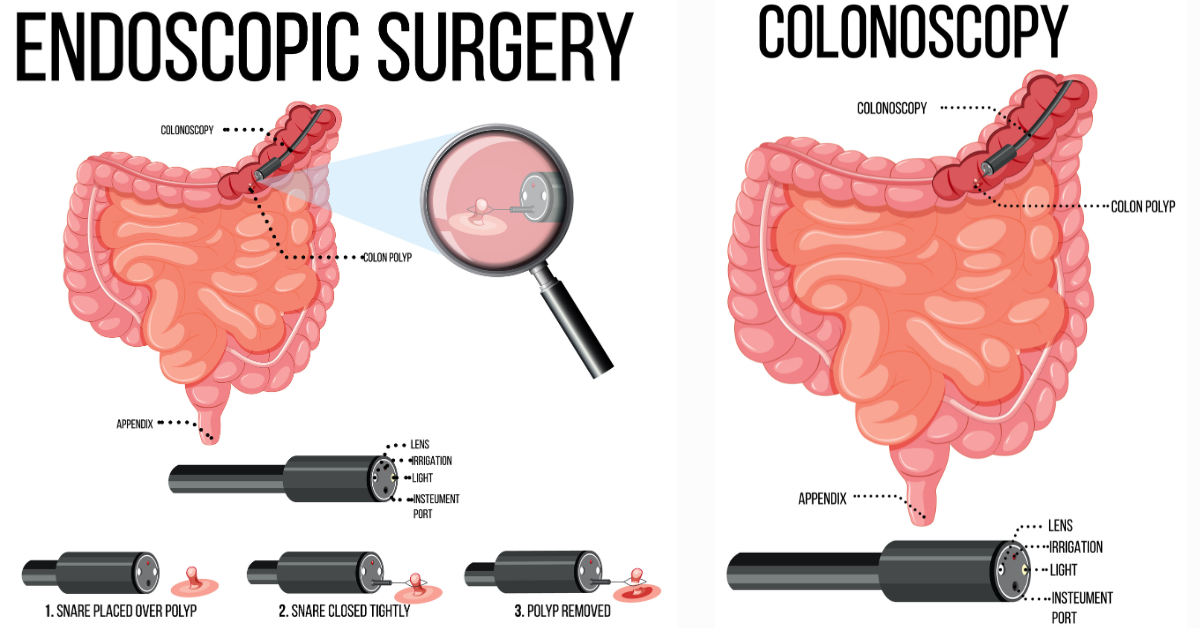Endoscopy and colonoscopy are two essential procedures for diagnosing digestive health issues. While they might seem similar, they serve distinct purposes and are used to examine different parts of the digestive tract. Understanding the differences can help you make informed decisions about your healthcare.
Endoscopy: An Overview
Endoscopy involves using a flexible tube with a camera, an endoscope, to examine the upper digestive tract. This procedure helps doctors diagnose and treat conditions affecting the esophagus, stomach, and the first part of the small intestine (duodenum). Common reasons for an endoscopy include:
- Persistent heartburn and acid reflux
- Unexplained stomach pain
- Difficulty swallowing
- Chronic nausea or vomiting
- Detecting ulcers and tumors
Colonoscopy: An Overview
Colonoscopy is similar to endoscopy but focuses on the lower digestive tract. During this procedure, a colonoscope is used to examine the colon (large intestine) and rectum. It’s a critical tool for detecting colon cancer, polyps, and other abnormalities in the bowel. Reasons for undergoing a colonoscopy include:
- Screening for colon cancer
- Investigating causes of chronic diarrhea or constipation
- Identifying sources of rectal bleeding
- Monitoring inflammatory bowel diseases like Crohn’s disease or ulcerative colitis
Key Differences
Areas Examined:
- Endoscopy: Upper digestive tract (esophagus, stomach, duodenum).
- Colonoscopy: Lower digestive tract (colon, rectum).
Preparation:
- Endoscopy: Fasting for several hours before the procedure.
- Colonoscopy: Bowel preparation, including a clear liquid diet and laxatives, to ensure the colon is clean.
Purpose:
- Endoscopy: Diagnosing and treating issues like GERD, ulcers, and upper digestive tract tumors.
- Colonoscopy: Screening for colon cancer, detecting polyps, and diagnosing lower digestive tract issues.
Understanding the differences between endoscopy and colonoscopy can help you make informed decisions about your health. While both procedures are vital for diagnosing and treating digestive issues, they focus on different parts of the digestive tract. For those in need of the best colonoscopy in Gurgaon, choosing a top-tier provider ensures you receive the highest quality care and accurate results. Don’t hesitate to consult with a specialist to determine which procedure is right for you and take a proactive step towards maintaining your digestive health.







